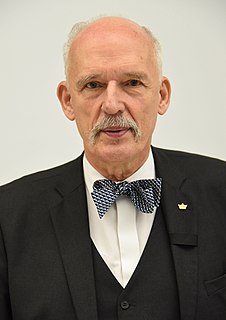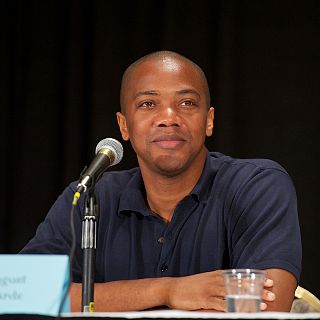A Quote by David Brin
I hate the whole übermensch, superman temptation that pervades science fiction. I believe no protagonist should be so competent, so awe-inspiring, that a committee of 20 really hard-working, intelligent people couldn't do the same thing.
Related Quotes
I think the least important thing about science fiction for me is its predictive capacity. Its record for being accurately predictive is really, really poor! If you look at the whole history of science fiction, what people have said is going to happen, what writers have said is going to happen, and what actually happened - it's terrible.
The thing with Superman is that he's completely emotionally open to the reader. Meaning what he tells you is what he's feeling; there's a transparency there. And what he tells other characters is usually as transparent as can be. What he says he believes in. So there's an honesty that is both really inspiring writing the character. One thing I love about Clark Kent is that there is a badassery that you don't see a lot. Even as Superman, he's always kind of restraining himself. When you challenge him, I think there's nobody that has a stronger spine than Superman.
How could you ask me to believe in God when there's absolutely no evidence that I can see? I do believe in the beauty and the awe-inspiring mystery of the science that's out there that we haven't discovered yet, that there are scientific explanations for phenomena that we call mystical because we don't know any better.
Literary science fiction is a very, very narrow band of the publishing business. I love science fiction in more of a pop-culture sense. And by the way, the line between science fiction and reality has blurred a lot in my life doing deep ocean expeditions and working on actual space projects and so on. So I tend to be more fascinated by the reality of the science-fiction world in which we live.
It had also been my belief since I started writing fiction that science fiction is never really about the future. When science fiction is old, you can only read it as being pretty much about the moment in which it was written. But it seemed to me that the toolkit that science fiction had given me when I started working had become the toolkit of a kind of literary naturalism that could be applied to an inherently incredible present.
Science fiction is a weird category, because it's the only area of fiction I can think of where the story is not of primary importance. Science fiction tends to be more about the science, or the invention of the fantasy world, or the political allegory. When I left science fiction, I said "They're more interested in planets, and I'm interested in people."


































